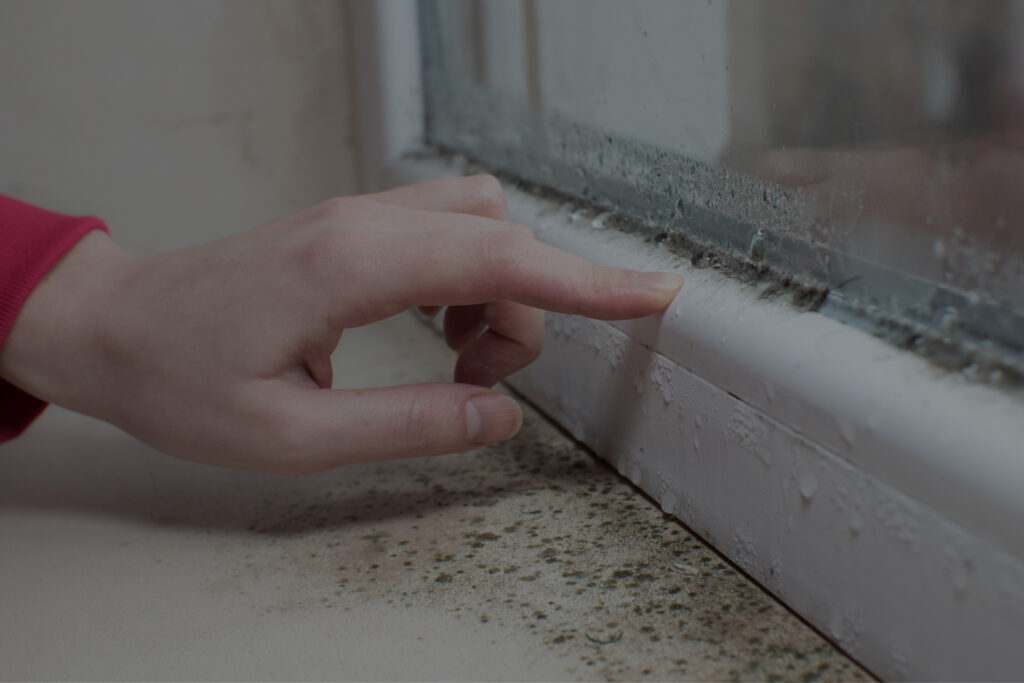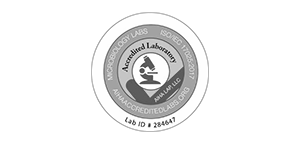
Recognizing the Signs of Black Mold Sickness: Know the Symptoms
If you’ve been exposed to black mold, you may be experiencing some unpleasant symptoms that could indicate mold sickness. Mold exposure can have a significant impact on your health, especially if you are sensitive or allergic to mold. It’s essential to recognize the signs of black mold sickness to protect yourself and take the necessary steps to address the problem.
Some of the most common symptoms of mold exposure include:
- Respiratory problems, such as coughing and wheezing
- Headaches and migraines
- Fatigue and weakness
- Allergic reactions, such as sneezing, runny nose, and itchy eyes
- Skin irritation and rashes
- Mood swings and irritability
If you are experiencing any of these symptoms, it’s possible that you may have black mold sickness. It’s important to seek medical attention if you suspect that you have been exposed to mold.
Key Takeaways:
- Black mold can cause a range of physical and mental symptoms
- Symptoms of mold exposure include respiratory issues, headaches, fatigue, and allergic reactions
- If you suspect you have been exposed to black mold, seek medical attention
Understanding Black Mold and Its Health Effects
If you want to protect yourself and your family from black mold sickness, it’s important to understand what black mold is and how it can affect your health.
Black mold, also known as Stachybotrys chartarum, is a type of fungus that thrives in warm and moist environments. It can be found both indoors and outdoors and is commonly found in places like bathrooms, kitchens, and basements.
Exposure to black mold can result in a range of health issues, from mild irritations to severe allergic reactions. Some of the common health effects of mold exposure include:
- Allergic reactions like sneezing, runny nose, and itchy eyes
- Respiratory issues like coughing, wheezing, and difficulty breathing
- Headaches, dizziness, and fatigue
- Skin irritation like rashes and hives
- Neurological symptoms like memory loss and mood changes
It’s important to note that the severity of these symptoms can vary depending on individual sensitivity and the amount and duration of exposure.
Next, we’ll take a closer look at the common signs of black mold sickness to help you recognize potential symptoms.
Common Signs of Black Mold Sickness
If you suspect that you’ve been exposed to black mold, it is crucial to be aware of the symptoms. Mold toxicity can lead to a range of physical and mental health problems, so it’s important to recognize the signs early on.
- Respiratory issues: One of the most common symptoms of black mold sickness is respiratory problems. This could include coughing, wheezing, and difficulty breathing. You may also experience a runny nose, sneezing, or sinus congestion.
- Allergic reactions: If you have allergies, you may experience an increase in symptoms when exposed to black mold. This could include itching, hives, and swelling. You may also experience redness and irritation of the eyes.
- Neurological symptoms: In some cases, black mold exposure can lead to neurological symptoms. This could include headaches, dizziness, and difficulty concentrating or remembering things.
- Fatigue: Black mold can also cause fatigue and weakness. You may feel tired and lethargic, even after getting enough rest.
- Gastrointestinal issues: Some people may experience gastrointestinal problems when exposed to black mold. This could include nausea, vomiting, and diarrhea.
- Skin irritation: In rare cases, black mold exposure can lead to skin irritation. You may experience rashes, itching, or even open sores.
If you experience any of these symptoms and suspect mold toxicity, it’s important to seek medical attention right away. Your healthcare provider can help diagnose your condition and provide treatment options to help you feel better.
Seeking Medical Help and Prevention Strategies
If you suspect black mold sickness, seeking medical help is critical. Your healthcare professional will assess your symptoms and determine the best course of action. Treatment for mold-related illnesses may involve medication, such as antihistamines or corticosteroids, to manage symptoms like coughing, wheezing, or skin irritation.
In severe cases, hospitalization may be necessary. If you experience difficulty breathing or chest tightness, seek emergency medical care.
Preventing mold exposure is key to avoiding black mold sickness. Here are some tips:
- Keep your home dry and well ventilated.
- Repair any leaks or water damage promptly.
- Clean and disinfect surfaces regularly.
- Use a dehumidifier in damp areas like basements.
- Wear protective gear like gloves and masks when cleaning up mold.
Remember that prevention is always better than treatment. By taking proactive steps to reduce your risk of mold exposure, you can protect your health and avoid the need for medical intervention.
By taking steps to prevent mold exposure, you can safeguard your health and well-being. If you suspect you have black mold sickness, seek medical help immediately to ensure the best possible outcomes.
Conclusion
In conclusion, recognizing the signs of black mold sickness is crucial for safeguarding your health. By understanding the symptoms of mold exposure, you can take appropriate action to prevent further exposure and seek medical help if necessary. Remember to keep your home and workplace well-ventilated and dry to prevent the growth of mold. If you suspect black mold sickness, don’t hesitate to seek professional medical help. With proper diagnosis and treatment, you can recover from mold-related illnesses and take steps to prevent future exposure.
FAQ
What are the signs of black mold sickness?
The signs of black mold sickness can vary, but common symptoms include respiratory issues, allergic reactions, fatigue, headaches, and mental health issues.
What is black mold and how does it affect health?
Black mold, also known as Stachybotrys chartarum, is a type of toxic mold that can produce mycotoxins. When exposed to these mycotoxins, individuals may experience respiratory problems, skin rashes, eye irritation, and other health issues.
What are the common symptoms of black mold sickness?
The common symptoms of black mold sickness include coughing, sneezing, wheezing, itchy or watery eyes, throat irritation, nosebleeds, fatigue, headaches, memory problems, difficulty concentrating, and mood swings.
What should I do if I suspect black mold sickness?
If you suspect black mold sickness, it is important to seek medical help. A healthcare professional can evaluate your symptoms, conduct necessary tests, and recommend appropriate treatment options.
How can I prevent mold exposure?
To prevent mold exposure, you should control indoor humidity levels, fix any leaks or water damage promptly, ensure proper ventilation in bathrooms and kitchens, clean and dry any moldy surfaces, and use mold-resistant products when renovating or building.







